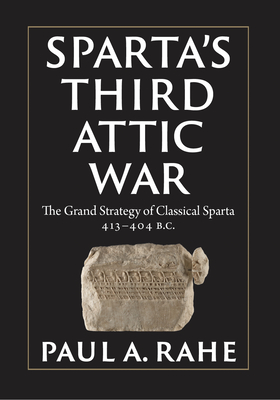Sparta's Third Attic War: The Grand Strategy of Classical Sparta, 413-404 BC

Sparta's Third Attic War: The Grand Strategy of Classical Sparta, 413-404 BC
In Sparta's Third Attic War, Paul Rahe examines the armed conflict that followed, attending to the impact on its outcome of the internal struggles that took place at Athens, at Sparta, and at the court of the Great King; describing the maneuvers of the wily, flexible, seductive Athenian turncoat Alcibiades, who dominated in turn the counsels of the Spartans, the Persians, and his fellow Athenians; and charting the eventual emergence at Lacedaemon of a commanding figure of helot ancestry named Lysander, who formed a close relationship with the younger son of the Great King and, in battle, outwitted the Athenians at every turn. This is a story of grit, determination, and brilliance on both sides. It examines the ambivalence of the Spartans, it relates the folly that brought the Athenians down, and it traces their ultimate defeat to defects in the policy and vision of Pericles.
PRP: 260.34 Lei
Acesta este Prețul Recomandat de Producător. Prețul de vânzare al produsului este afișat mai jos.
234.31Lei
234.31Lei
260.34 LeiLivrare in 2-4 saptamani
Descrierea produsului
In Sparta's Third Attic War, Paul Rahe examines the armed conflict that followed, attending to the impact on its outcome of the internal struggles that took place at Athens, at Sparta, and at the court of the Great King; describing the maneuvers of the wily, flexible, seductive Athenian turncoat Alcibiades, who dominated in turn the counsels of the Spartans, the Persians, and his fellow Athenians; and charting the eventual emergence at Lacedaemon of a commanding figure of helot ancestry named Lysander, who formed a close relationship with the younger son of the Great King and, in battle, outwitted the Athenians at every turn. This is a story of grit, determination, and brilliance on both sides. It examines the ambivalence of the Spartans, it relates the folly that brought the Athenians down, and it traces their ultimate defeat to defects in the policy and vision of Pericles.
Detaliile produsului









